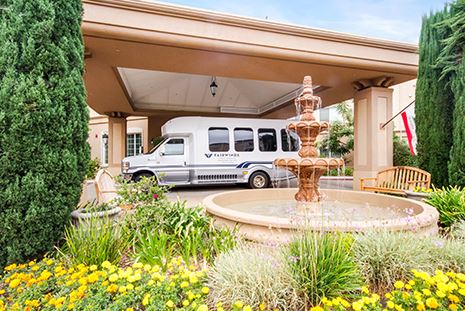When we think about the aging of our bodies, we often worry about diseases such as Alzheimer’s, cancer or perhaps a stroke. While these all can be issues we might have to face, there are many other highly common health issues affecting older people. If you have a loved one in assisted living or board and care, here are some common illnesses and health issues and symptoms.
Urinary tract infections are extremely common in older adults, and you might be surprised to learn that these infections can cause some odd symptoms. Of course, the urge to urinate and pain during urination are quite common with a UTI. When these problems occur, it’s time to see a doctor. However, if you have a parent or spouse with dementia or Alzheimer’s disease and notice a sharp, quick decline in memory, it can be caused by a UTI. The person might not even have any other common UTI symptoms. So if do you notice these problems, have a doctor perform a quick test to rule out some type of infection.
Balance & Mobility
If you notice that your loved one seems to be having problems with balance and mobility, this could be a sign of many health issues, or it could simply be vision problems. Diseases such as glaucoma and macular degeneration are quite common as people age. With proper eye care, vision loss can be slowed, stopped or corrected depending on the condition. If a loved one has eye pain or seems to have trouble with vision, set up an appointment with an ophthalmologist as well as their general care practitioner. At some facilities for assisted ling or board and care, there is a shuttle service that can take a person to visit the doctor, so be sure to take advantage of this if needed.
Balance issues can be a sign of a problem with medication, and if your spouse or parent describes issues with balance or dizziness, this could be the reason. Sometimes, medications interact with each other and cause problems. Or maybe, a medication needs to be changed or stopped if it is causing problems.

Also have the doctor check for ear infection if dizziness or balance is off, as this might also be the cause. If you visit your parent at their board and care and find that they are having trouble with dizziness or have fallen, it is a good idea to book a doctor’s appointment.
Communication is Essential
Many issues are quite embarrassing for parents to discuss with their kids, but they are important to address nonetheless. If something seems “off” with your parent (such as their mood or perhaps their weight has dropped), be sure to have a candid discussion. Don’t be shy about asking questions about incontinence and constipation. These are very common health issues we encounter as our bodies age, but they can often be fixed easily with changes in diet, increase of exercise or medication, if necessary. If you seem comfortable discussing these issues, it can make them feel more comfortable as well.
If a parent lives in board and care or assisted living, chances are that you don’t see them every day. However, scheduling at least a weekly visit can be important to help you monitor their health. Be sure to ask the staff at their home to contact you if they notice changes, as well.
With board and care, you tend to have six or fewer residents, which can make it easier for the staff members to notice problems quickly. In addition to keeping an eye out for problems, schedule regular medical check-ups. Take your parent to the appointment, and if they don’t have objections, spend some time talking with the doctor and your parent. You also can call the doctor prior to the visit and express your concerns. Sometimes a doctor or nurse will have more luck discussing health issues than a child or spouse.
If you are interested in finding a home for board and care in San Diego County, contact Care Placement today. We are San Diego’s largest free eldercare referral service and can help you find a board and care home, assisted living facility, or nursing home for yourself, your parent or your spouse.
